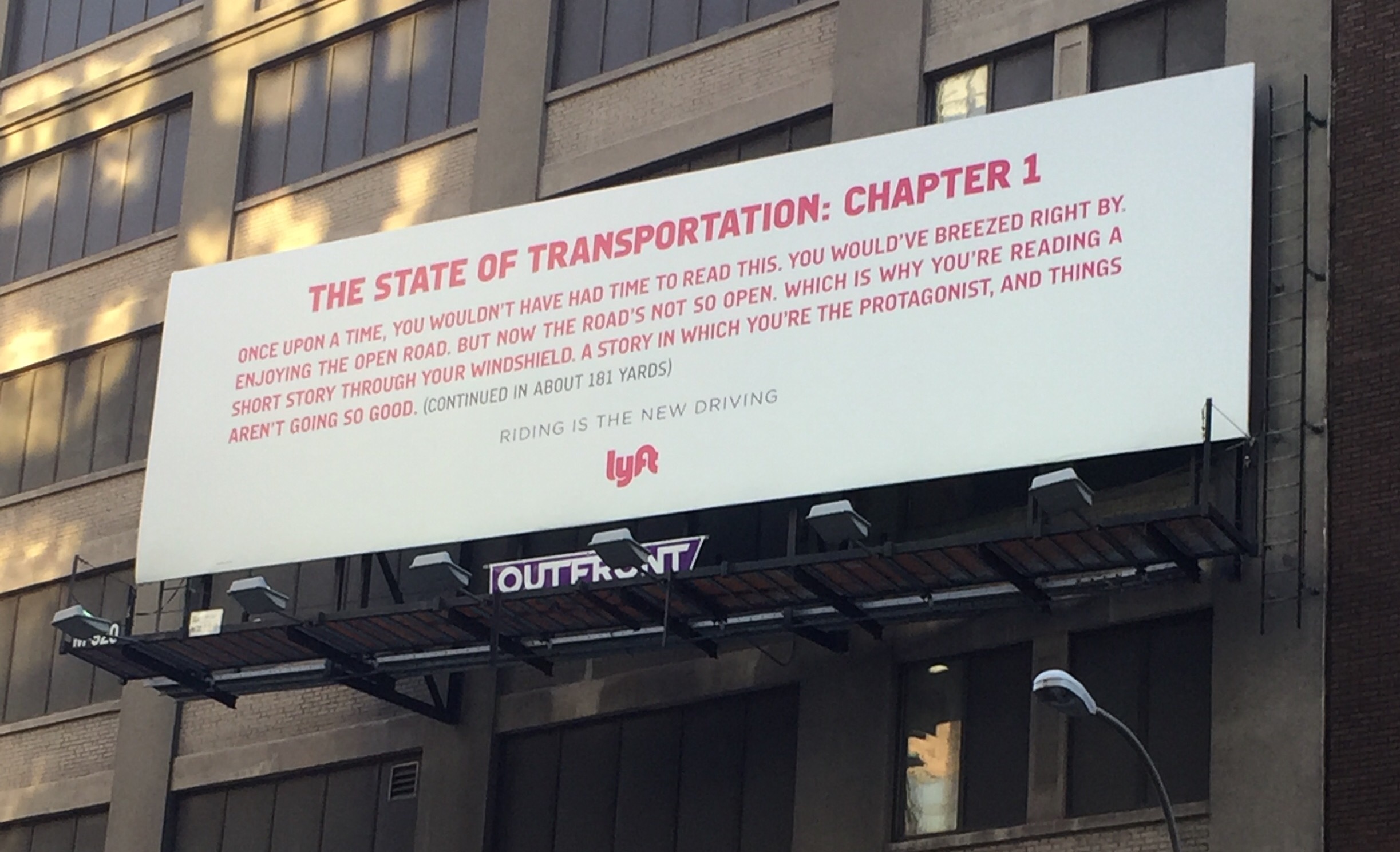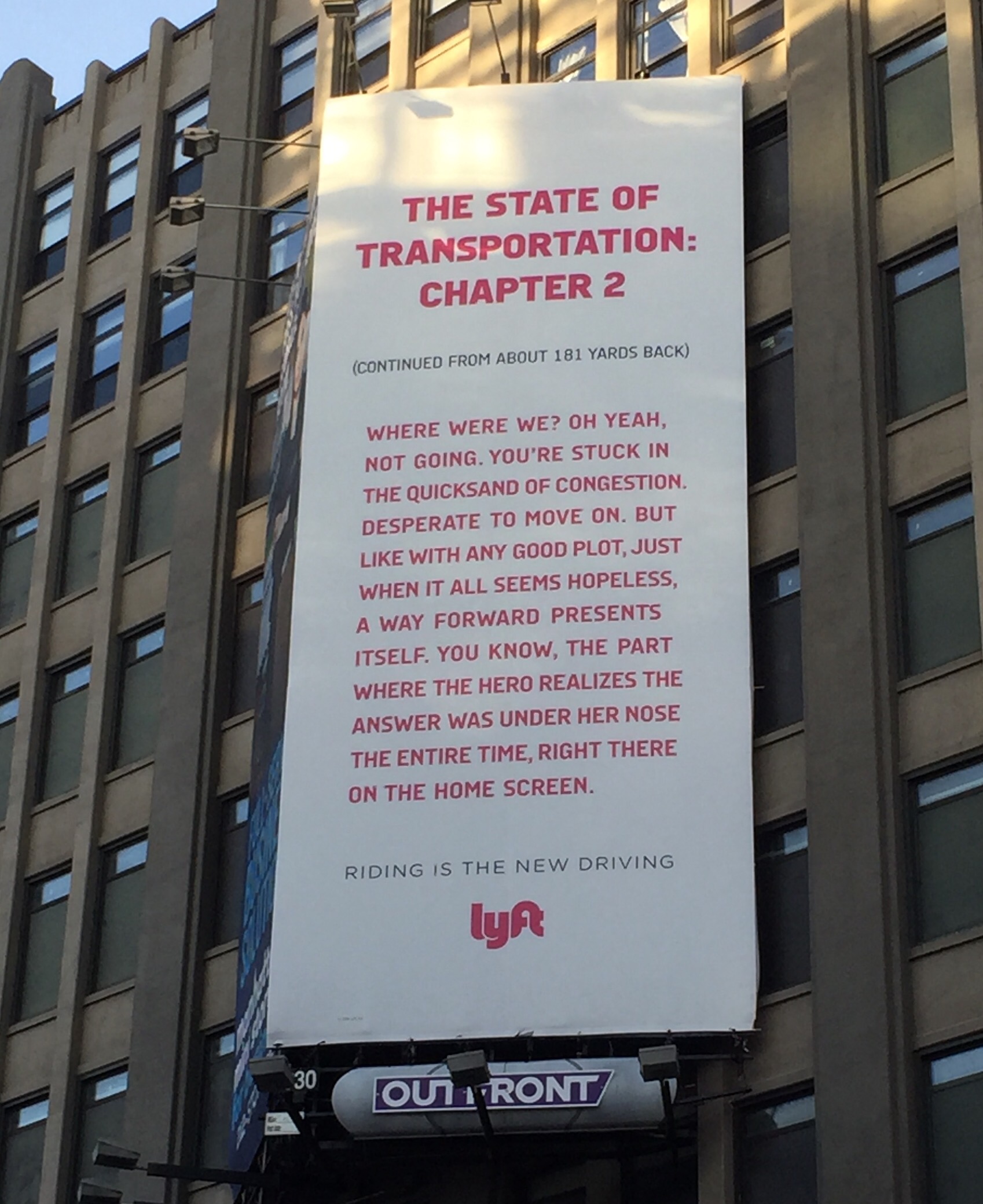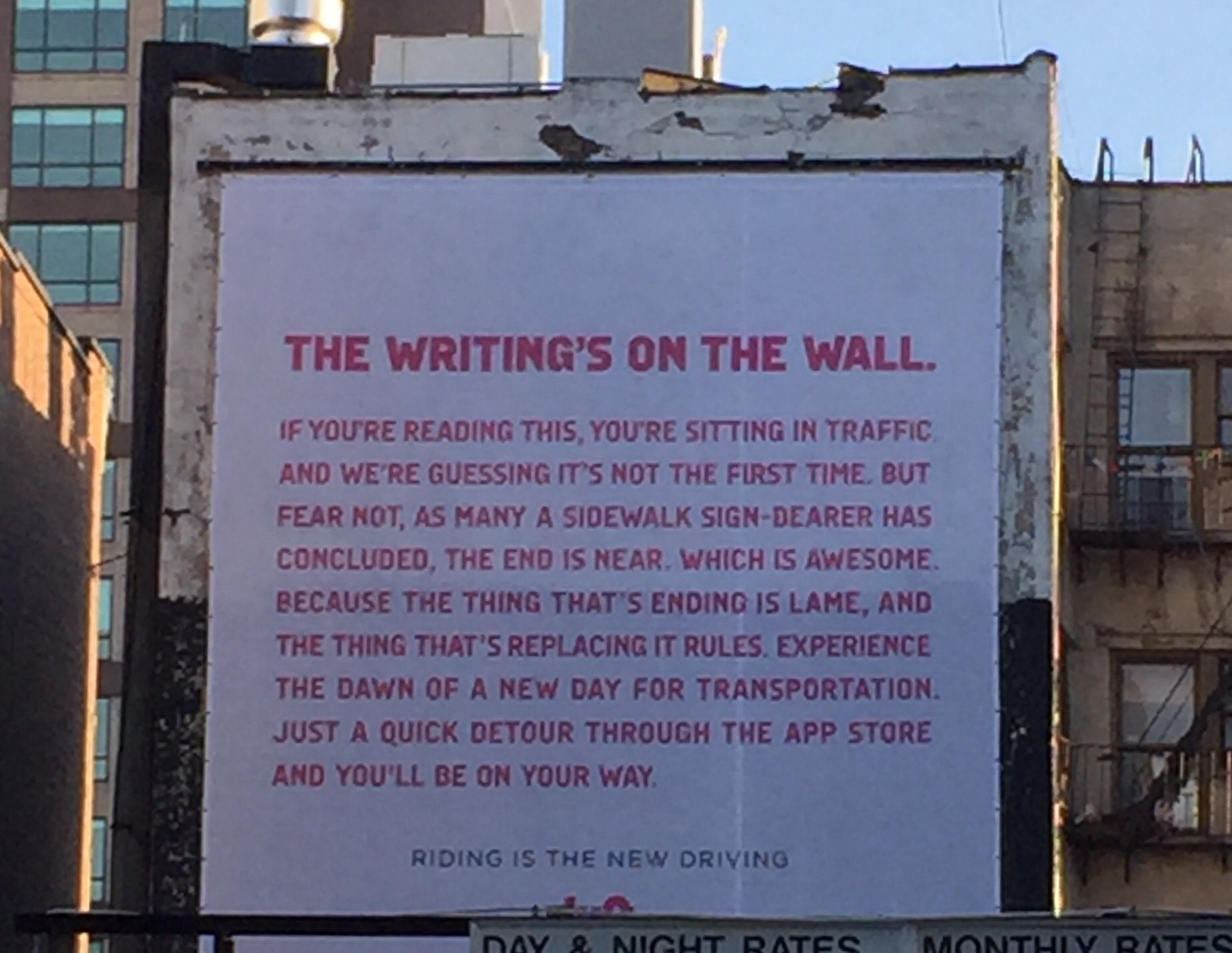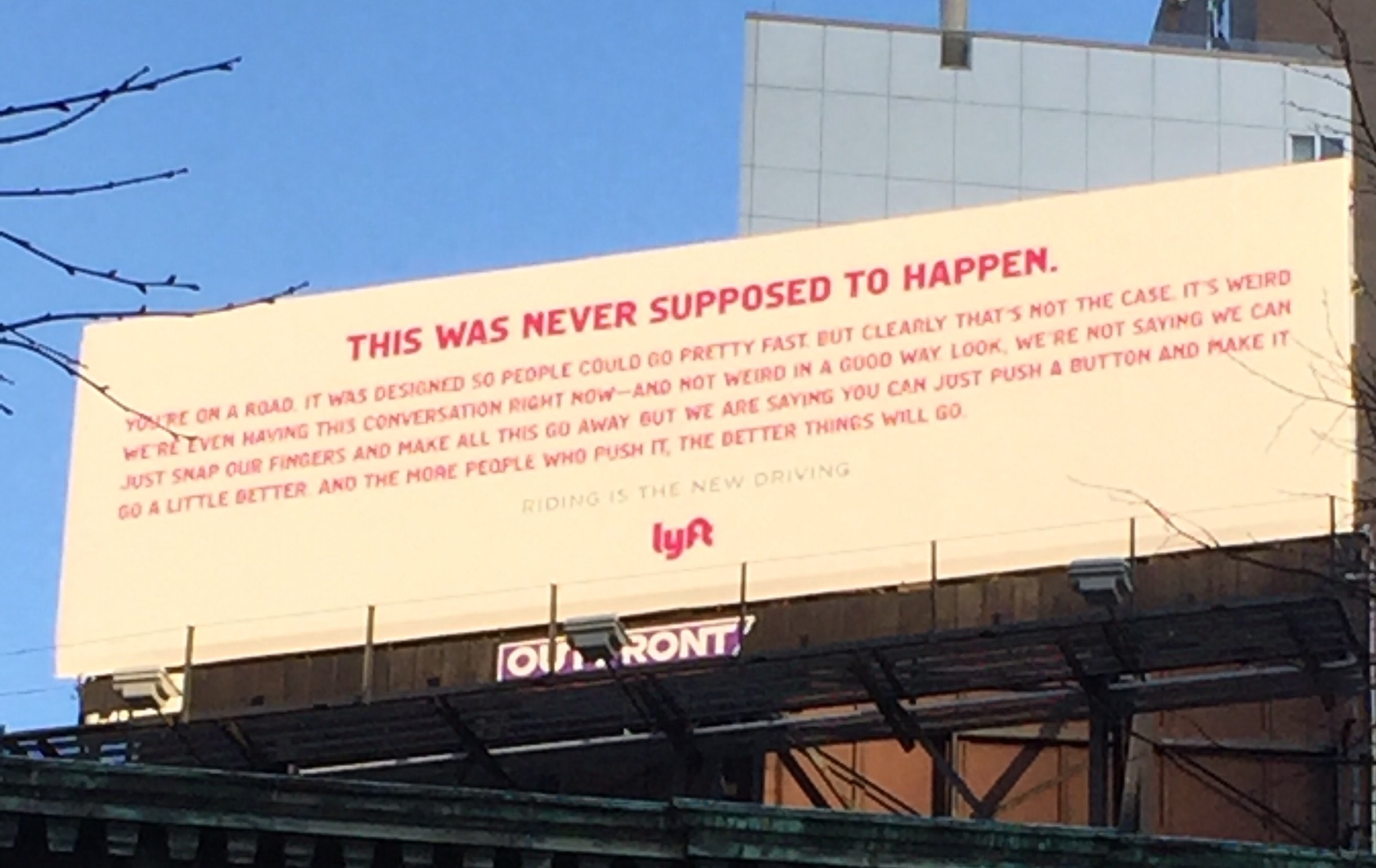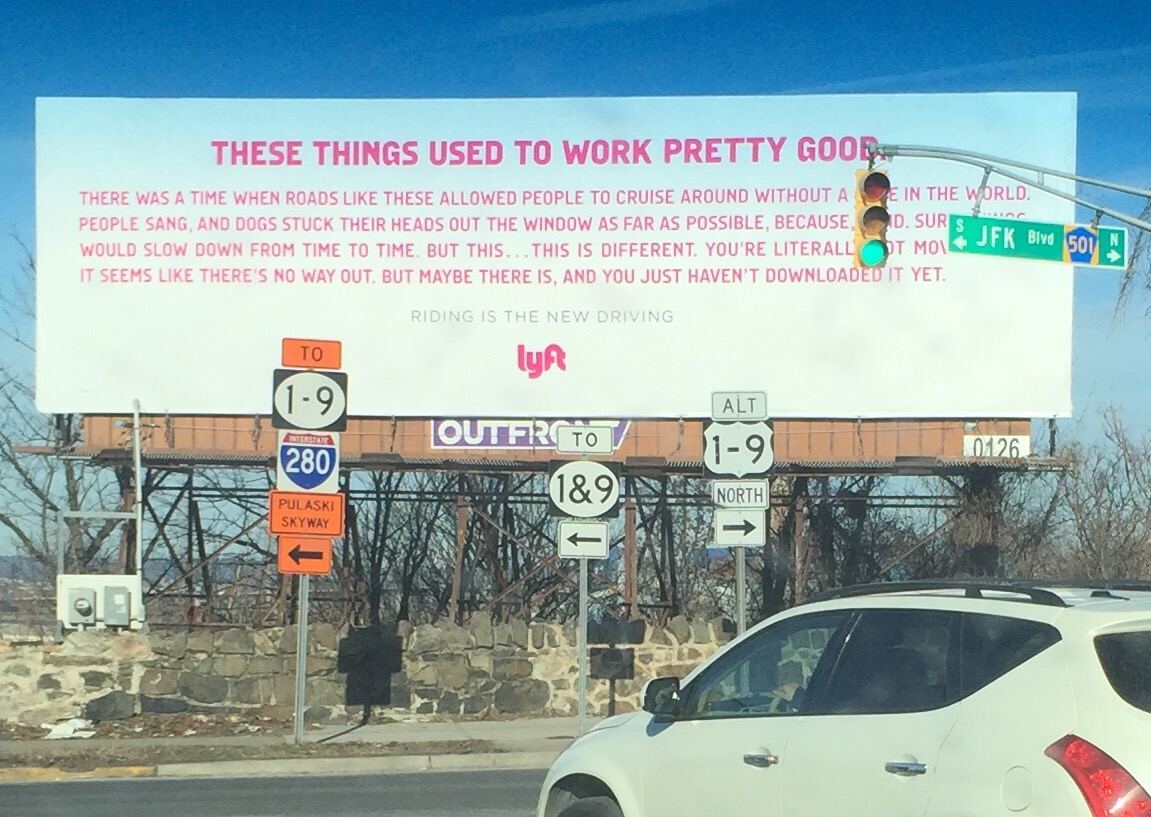Ever since the end of WW2, and the beginning of the suburban sprawl, car culture has flourished in America. Your car is an extension of yourself. And for decades the automakers have been working to provide us with yearly upgrades. Car culture is deeply ingrained in our society. A car represents freedom – the ability to go wherever you want. But now we are at the start of a tremendous culture shift.
Fewer and fewer millennials own a car (driving by 16-34 year olds decreased 23% between 2001 and 2009*). This is in part due to urbanization and the rise in telecommuting. Layer on top of this the rise of ride sharing apps and self driving cars, and the reasons to own a car are going away.
Why should you lease a car, pay insurance, and deal with parking? Once cars are fully automated I can call a Lyft or Uber, and pay only for the cost of the vehicle and gas. In 2015 the IRS allowed for a deduction of 57.5 cents per mile for a cars. That’s probably a pretty good proxy for what a ride will cost once we don’t have to pay for a human to operate it (and it can be further reduced with ride sharing).
But this cultural shift won’t happen overnight.
I’ve been fascinated with Lyft’s marketing campaign, which began a few months ago, where they are working to promote the shift in our culture. Lyft has been buying billboards in heavily congested areas where they know people will be stuck in gridlock. They’re breaking the typical pattern of billboards by using long form copy and telling the story that riding is the new driving. They’re working to prime people for the upcoming reality that it will make more sense not to own a car, and that car culture is a thing of the past.
Did you read the copy? Lyft is positioning themselves as the hero in this story. They’re here to save you from the burden of traffic, congestion, and the pains of commuting. With more people sharing cars there will be less traffic. And if you don’t have to drive in it, why should you care?
Do you buy into their story that riding is the new driving?
